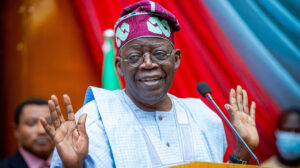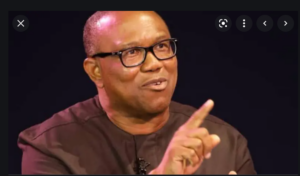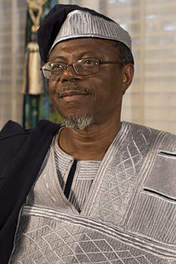Elections help to feel the pulse of the people. They reflect their positions on matters of national importance and, at their very essence, the impacts of those positions on their eventual choice of officeholders. The 2023 elections in Nigeria have come and gone, but they have left us with far more than an ordinary sampling of public opinion. They have unmasked deep fissures in our society and emphasised new modes of doing business for Nigerian politicians. In this piece, I will attempt a dissection of some of the many issues that emerged from the discussions.

The Impact of Social Media
Once, mobile phones were the preserve of a few. Over time, they became accessible even to low-income Nigerian households. It is common now to find young people in their early teenage years possessing these ubiquitous devices that have become an important part of our daily lives. With the appearance of smartphones, people are better able to execute tasks that would previously have required a computer. They can create content and disseminate information without the constraints that would ordinarily have plagued such intents had they been saddled with a button-operated phone.
Anyone familiar with the social media space would realise there was once an era involving 2go, a platform incentivising young people to spend much time growing their user status. This quality is an apt description of social media applications in general. The immense quantity of time that people spend on them means they are optimal avenues for shaping public opinion and driving the conversation around particular issues.

In the 2023 general elections, the recognition was more intense than ever. Formerly less than a decade ago, politicians staged battles on social media by deploying influencers. These people helped their employers propagate their messages and win as much public support as necessary. The focus was also on securing another arena, asides from traditional print and television, to smear and discredit rival candidates.
Changes in the intersection of sociopolitical developments with new media became evident when campaigns on internet platforms began to influence government policies. Often, when people were displeased with a particular agenda, they went on social media, discussing it extensively and spreading the message to new conversants using hashtags. The borderless nature of social media and the consequent risk of drawing international attention was a factor that pushed the government to achieve quick resolutions of popular issues.

Still, it can be argued that no single conversation came close to the EndSars protests that shook the nation in October 2020. Caught between the fires of a pandemic that had somehow resisted attempts to curtail its spread and endless harassment by their country’s police force, youths took to the streets. The movement depended on social media, particularly Twitter, for mobilising support and circulating information that mainstream media were reluctant to publish. Through these channels, they also demonstrated a heroic spirit that seized the imaginations of Nigerians abroad and caused them to launch protests in foreign territories.
Less than two years on, the same pipeline the protesters relied on became a site of a more toxic dimension of sociopolitical furore. At first, it served harmless purposes. Citizens and organisations alike leveraged social media in requesting that people come out to secure their Permanent Voter’s Cards. That an appreciable number of young people, including students, among the newly registered voters was an outcome that may be directly linked to that effort.
Also, it helped disgruntled youthful first-timers who have spent most of their early years coping with the limitations that Nigerian citizenship imposes to find a political idea that they could finally identify with. And there was the post-election discontent, too; social media platforms cemented conversations around the failures of the National Electoral Commission, and the typical biases acted out by security agents in certain areas. However, the benefits extend no further.
Before the election, the Nigerian social media space was saturated with abuse, which bore no limits in the range of issues it could leverage for its destructive arsenal. Fake news was circulated generously, and people with dissenting political views were roundly victimised for their choices. The political class were not exempted. Some chose to go viral with videos supposedly indicating health, while another was popular for quoting incorrect data to display acumen.
However, some of the most divisive comments were made after the federal elections as states began to gear to have theirs. After an upset at the presidential polls, anti-ethnic machinery kicked in to prevent the country’s commercial capital from falling into the hands of the opposition party. Rhodes-Vivour’s candidature was questioned, and his potential Igbo supporters were accused of coming to the Southwest with an agenda to overtake the region politically. In response, whatever hibernating bigotry had existed in hearts before suddenly developed into full-fledged expressions of hate and character assassination. Politicians only had to tug on the strings, and Nigerians, like puppets, responded.

The Third Force and a Ready Political Environment
For the people who populated the camp of the Labour Party candidate, there was one option and one only: Peter Obi. It didn’t matter that some of the fanbases comprised people lacking in true conviction and had simply been intimidated into joining the crowd or that some were there for the same ethnic reasons the flagbearer promised to eschew. The fact that the candidacy was spread along ethnoreligious lines made the task of polarisation quite easy.
Even worse, the APC presidential candidate had emphasised strategy to win the election. Then there were the malodorous records of corruption that trailed the candidates of the frontline parties, particularly the APC. When one thinks of these things, it would appear the battle was already fighting itself for Peter Obi. All he had to do was differ. In appealing to the disgruntled subset of the Nigerian people I mentioned earlier, the Labour Party weaponised the relatively untainted resume of its candidate, serving the promise of a new Nigeria to the youths in the exact places they spend time.
It is not difficult to see how that could have roused imaginations, even without the sour ingredient of intolerant supporters. What Nigerian would not be taken by the sight of a candidate with no obvious allergy to mingling with the ordinary? The most remarkable moments when the former Anambra governor experienced a show of love were in the videos circulated on social media. One remembers the “ellu p” video recorded at a polling unit, energetic celebrations of Obi victories by students on campuses, and dogged scrutiny of the INEC results as they trickled into the results viewing portal.
A Flagrant Show of Shame
I am not biased towards any party; this article should not be construed in that light. What bothers me the most is the palpable incompetence of the Independent National Electoral Commission, INEC. Before the polls, the same agency had activated the process of building trust. It had been in the media, discussing its new strategy for preventing manipulation and the technology that would form the backbone. It had also been the unfortunate victim of attacks on facilities by political miscreants, events that would imply that, truly, the Commission was out to do its job.
However, after its many assurances, INEC could not have done a more terrible job of disappointing Nigerians than it did on the 25th. Everything the Commission Chairman had promised was an unmitigated failure, and what made that astounding was the practice they had supposedly had in the off-cycle elections of Osun and Ekiti—hundreds of millions of dollars in allocation, months of long planning, and collaborations with stakeholders. The best INEC could do was arrive late at the booths and inform Nigerians of glitches. Anyone with a sense of fairness would have raved.
Had there not been such hype, perhaps Nigerians would have taken it as just another of the typical failures of the system. That was not the only case. The Central Bank’s inability to smoothly coordinate cash distribution after it decides to withdraw old notes also comes to the fore. Both agencies simply cause one to wonder if it is possible to get anything right. If the Nigerian Security Printing and Minting Company had had a capacity shortage, as suggested by the media, why then did the Bank choose to proceed with an ill-informed policy?
Not only did it end up incurring damages for financial institutions whose subordinate status to the CBN means they can barely disclaim the allegations of hoarding currency, but it also created doubts about who was truly in control of the country. One moment, state governors were ordering banks to accept old notes; the next, the Central Bank appeared to still be pursuing its policy. Eventually, while the restriction on cash might be debated as having had some real impacts on vote buying, the torture imposed on Nigerians was avoidable.
The Politics of Sanctimony
Obasanjo’s letter comes to mind. Some asked why a man who had not been known for his flawlessness suddenly began to preach of a better Nigeria. Was he, not himself, a participant in some of its unpleasant phases? Whether the former president meant well or was merely throwing his hat into the political ring for relevance is a subject for political analysts, but the certain one is that old politicians cannot whitewash their reputations by playing saint. Nigerians are distrustful; no people understand the reasons better than the old faces.
On another end of the divide was the APC gubernatorial candidate, Aishatu Dahiru Ahmed, also known as Aisha Binani, efforts to manipulate sentiments in her favour. Confronted by cultural and religious biases, she contested the state’s governorship seat. It would indeed be remarkable to have a first female governor, especially one in a region stereotyped for its conservatism; however, when that candidacy is poor, covering for several flaws, perhaps we would be advised to tarry.
The gubernatorial candidate was at the centre of a nepotistic scheme involving election materials before the polls and was also yet to satisfactorily address issues raised by Sahara Reporters on the possible misuse of office. With those unsettled allegations still hovering, there is no reason to treat candidates entrusted with the mandate of millions differently because they are female.
Finally
The only bright spot in the election might just be that there is finally some political involvement from young people. Although the data on voter turnout is problematic, that they were such active participants compared to previous seasons of apathy is probably a good omen for our country. With all the hate that the elections have generated locally and internationally, it would be interesting to observe happenings in the Nigerian political scene as they unfold in the coming months.
** This is Part 1 of my reflections on the Panel Discussion on Nigeria’s 2023 elections by Ayisha Osori, Jibrin Ibrahim, Cynthia Mbamalu, and Chido Onumah. The session, which has received millions of views across different platforms, discussed the various aspects of the elections. My views below are not necessarily those of the four panelists. For the transcripts, see:
YouTube: https://youtube.com/watch?v=mDGGO7ffzuw
Facebook: https://fb.watch/jX_ecFA_ZE/


